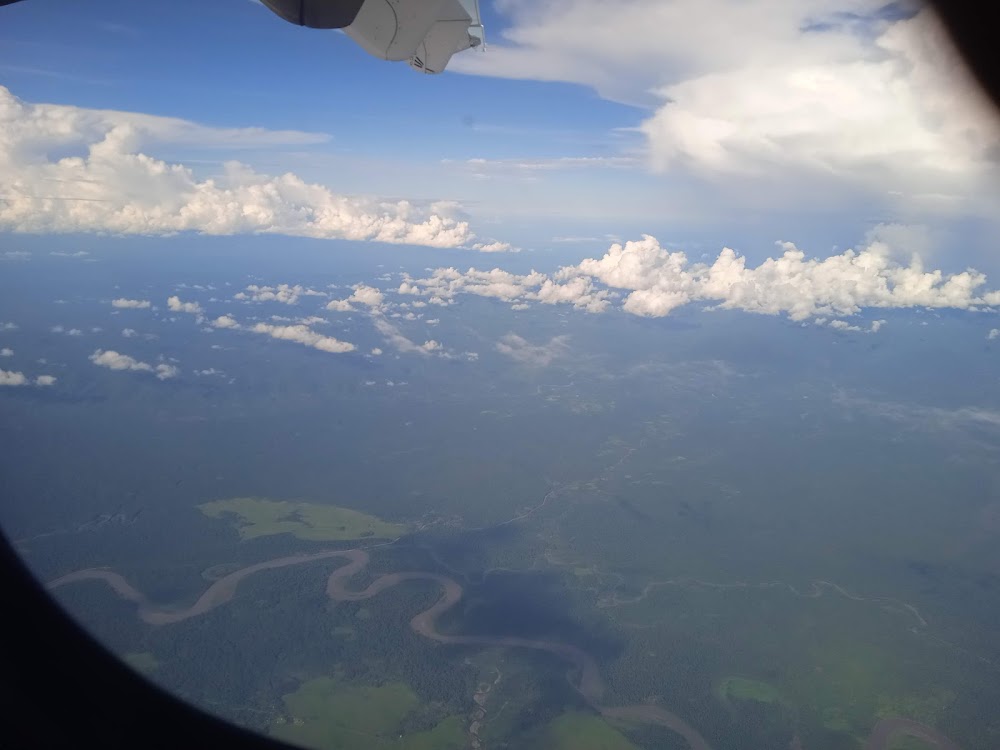Lake Tumbi (Lake Tumbi)
Related Places
Overview
Lake Tumbi is a hidden gem nestled in the Western Highlands Province of Papua New Guinea. This enchanting lake, surrounded by lush landscapes and verdant mountains, offers an evocative glimpse into the country’s stunning natural beauty and diverse cultural tapestry. For foreign tourists seeking an off-the-beaten-path adventure, Lake Tumbi promises serenity, cultural richness, and a powerful connection with nature.
Historically, Lake Tumbi holds significant cultural value among the local tribes, whose way of life and traditions are intricately tied to the natural surroundings. The indigenous communities of the Western Highlands have a rich heritage, revered for their deep understanding of the terrain and their vibrant traditional ceremonies. The lake often features in local folklore and is considered a sacred site. Visitors will often hear stories from elders about ancient legends and the spiritual significance of the lake, providing a unique cultural lens through which to appreciate this destination.
Ecologically, Lake Tumbi is vital to the regional ecosystem, serving as a habitat for a myriad of flora and fauna. The serene waters are home to diverse aquatic species, while the surrounding forested areas teem with countless birds and mammals, making it a paradise for nature lovers and bird watchers. The varying altitudes and unique climate of the Western Highlands foster micro-environments that attract botany enthusiasts and photographers alike.
For adventure seekers, Lake Tumbi offers numerous activities that make the visit memorable. The surrounding areas are perfect for hiking, with trails that meander through dense forests, valleys, and hills, providing breathtaking views at every turn. Kayaking on the calm waters offers an intimate perspective of the lake's natural beauty. For anglers, the well-stocked waters present excellent fishing opportunities. This combination of physical adventure and the peaceful ambiance creates a fulfilling outdoor experience.
Moreover, cultural immersion with the local population adds another layer of richness to the journey. Tourists will find the people around Lake Tumbi warm and welcoming; many are eager to share their traditional practices, from vibrant attire to intricate weaving and craft-making skills. Participating in a local market day or joining in traditional dance celebrations can be an eye-opening experience, revealing the harmony with which these communities live with their environment.
Photography enthusiasts will find Lake Tumbi quite inspiring. The interplay of light on the water at different times of the day creates a spectrum of beautiful reflections, making it an ideal location for landscape photography. The vibrant colors of the flora, contrasted against the deep blue of the lake and the sky, create postcard-worthy scenes. Dawn and dusk at Lake Tumbi are particularly magical, offering a tranquil and picturesque start or end to the day.
Traveling to Lake Tumbi might be somewhat challenging due to its location, but this seclusion is part of what makes it a special and untouched paradise. Reaching it typically involves a combination of air travel to the provincial capital and then a road journey that offers its own scenic delights. The journey through the highlands is an adventure in itself, with panoramic views of the rugged landscape, terraced gardens, and traditional homesteads that dot the hillsides.
In conclusion, a visit to Lake Tumbi is an opportunity to connect deeply with nature, experience the authentic culture of Papua New Guinea's highlands, and partake in various outdoor activities. It's a place where history, traditions, and natural beauty converge to offer a travel experience that is both peaceful and invigorating. For the foreign tourist, Lake Tumbi is not just a destination; it’s a journey into a world where every moment is steeped in natural wonder and cultural richness.





